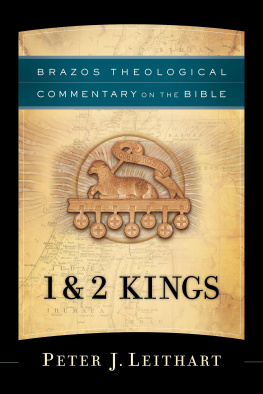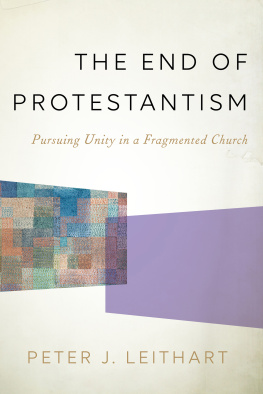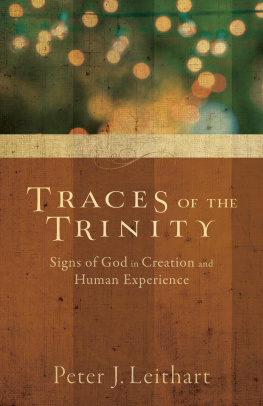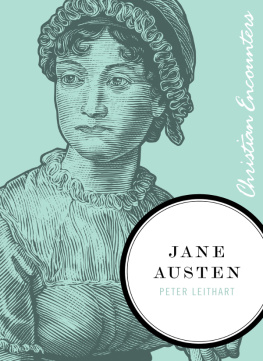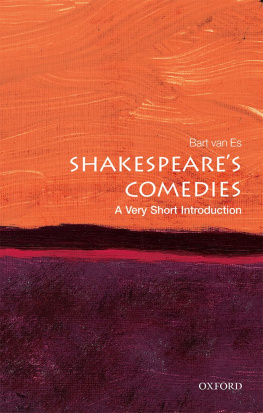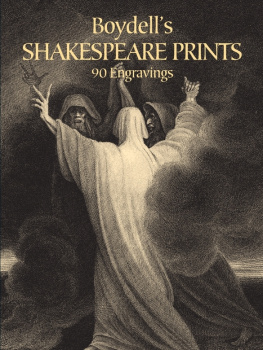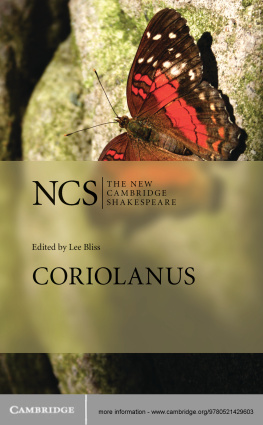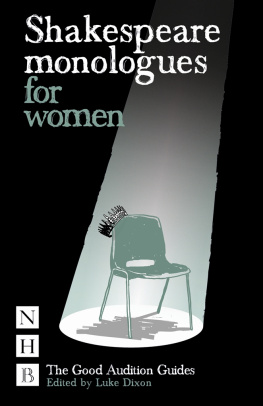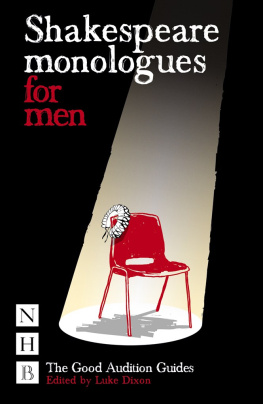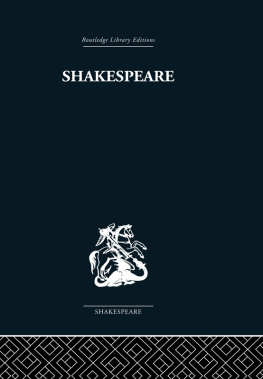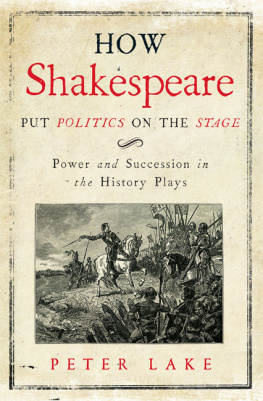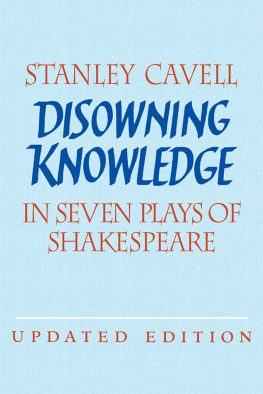N early a quarter century has passed since I published my first book on Shakespeare, Brightest Heaven of Invention (Canon Press, 1996 ). During the intervening years, during which the study guides collected here took form, I have lectured and written on Shakespeare in more venues than I can remember. Ive taught electives at New Saint Andrews College, written chapters or sections of chapters of books and essays online and in print, delivered a paper at the American Political Science Association, lectured in Ukraine and probably in St. Petersburg and London. I am poor in gratitude because I am poor in memory. Poor as it is, my gratitude is genuine. Few things delight me more than writing and talking about Shakespeare, and I am always thankful for the opportunity.
My gratitude does have one very direct object: Rev. John Barach, who carefully read through the manuscript, saved me from a lot of sloppiness, prepared the manuscript for typesetting, and raised many intriguing questions that I have no time to address. This is a far, far better book as a result of Johns work.
This book is dedicated to my forthcoming grandchild, my thirteenth, who will be the fourth child of my son Sheffield and his wife Laura and who will join a merry bandEllie, Col, and Warren. Merry band notwithstanding, I expect he or she will do what Lear says all babies do: When we are born, we cry that we are come / To this great stage of fools. I trust that the next Leithart will find much joy in the midst of tears, and will know Wisdom in this world of folly, a Wisdom that like Lears, like Saint Pauls, bears a strong resemblance to folly.
Shakespeare the Christian?
T his study guide to six Shakespeare plays is openly, unapologetically theological. I highlight biblical imagery and Christian themes in each of the plays.
Of course I would. Im a theologian, trained to find theology under every rock and behind every bush. But is there any reason to think Shakespeare knew any theology or intended his plays to be understood from a religious angle? In short, was Shakespeare a Christian?
We dont know exactly when Shakespeare was born, but we do know he was baptized on April , 1564 . Baptized , but was he a Christian ?
The answer partly depends on what we think happens when someone is baptized. Many Christians believe that baptism marks the beginning of life as a Christian. I am one of those Christians. My short answer is, Will Shakespeare was a Christian because he was christened.
Some will think that an evasion. When people ask Was Shakespeare a Christian? they usually have something more specific in mind. Was he a true disciple? Did he actually believe? Did his faith, whatever it was, come out in his poetry? In the anachronistic jargon of modern evangelicalism, they want to know if he had a personal relationship with Jesus.
To that question, we have no certain answer. Shakespeare left no personal papers, no spiritual diary, no Confessions , no Journal . Many in his time did write spiritual journals. As far as we know, Shakespeare did not. Without such records, we have no window into his soul or his head.
What we have are plays and poems, but there Shakespeare is typically a ventriloquist, speaking different voices. We cant conclude that Shakespeare was a nihilist who believed that life is a tale / Told by an idiot, full of sound and fury, / Signifying nothing just because Macbeth says it ( Macbeth ..). Its Gloucesters opinion that As flies to wanton boys, are we to th gods; / They kill us for their sport ( King Lear ..). We have to do a good bit of sifting before we conclude that Shakespeare agreed. We have better reason to think he believed all the worlds a stage, but before we draw too hasty a conclusion we should remember those words come from Jaques in As You Like It (..). When we hear John of Gaunt wax nationalistic about This blessed plot, this earth, this realm, this England, / This nurse, this teeming womb of royal kings ( Richard II ..), we should be alert, because the plays action is likely to ironize such enthusiasms.
Were not completely at a loss. We know, for instance, quite a lot about the aims and intentions of Elizabethan and Jacobean playwrights. Recent Shakespeare scholars have recognized that the theater, like everything else in early modern England, was infused with religion. Debora Shuger writes, If it is not plausible to read Shakespeares plays as Christian allegories, neither is it likely that the popular drama of a religiously saturated culture could, by a secular miracle, have extricated itself from the theocentric orientation informing the discourses of politics, gender, social order and history.
In his 2002 Shakespeares Tribe , Jeffrey Knapp argues that scholars like Shuger dont go far enough. While they stress the centrality of religion to the study of Renaissance drama, they still assume that Renaissance playwrights [are] Christian only cognitively or subliminally, rather than purposively and devotionally. Even recent revisionist scholars dont reckon with the possibility that Renaissance plays may have been intended and received as contributions to the cause of true religion, nor have they considered the possibility that Shakespeare and his contemporaries were capable of envisaging their profession itselftheir acting and playwrightingas a kind of ministry.
Knapp claims that English theology and ecclesiology shaped the drama at a fundamental level. Theology was one of the factors determining the conceptualization of the player and the playwright as professions, and of the theater as an institution. Those theologically informed concepts disposed theater people toward the enacting of certain confirmatory plots, themes, and characters on stage; and thus religion had a crucial say in the creation of plays, in their content, and, by extension, in their presumed social effects. In short, religion had a more direct role in the production of plays than as the deep structure of dramatized ideology; it provided the rationale and even motives for acting and playwrighting. Not accidentally and unwittingly, but deliberately and carefully, playwrights and stage managers made the stage an alternative pulpit.


